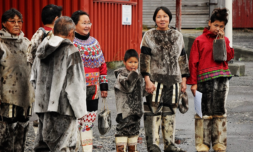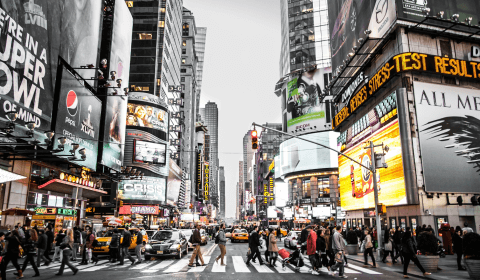A new Panorama investigation looked into accusations of sexual assault against male employees by former Abercrombie & Fitch CEO.
Following the grim exposure of Russell Brand’s alleged sexual abuse by Channel 4 Dispatches, the BBC teased – for the first time in Panorama’s recent history – an exclusive episode. Its focus was kept secret from initial announcement until the time of air.
Given the Brand allegations, a rumour mill quickly got to work in proposing that Panorama was about to launch a similarly high-profile sexual abuse scandal, if not something significantly pretentious in relation to politics and current-affairs – Panorama’s usual subject matter.
Lucy Mangan of the Guardian suggested that this marketing ploy (keeping the episode highly embargoed so as to fuel public speculation and, ultimately, channel ratings) – was a distasteful capitalisation on the suffering of Brand’s victims.
In the end, it wasn’t a celebrity or politician in the limelight, but the former CEO of clothing retailer Abercrombie & Fitch. Mike Jeffries, along with his life partner Matthew Smith, were revealed to have recruited young men for sex parties under the guise of modelling opportunities.
The story was part of a two-year investigation by BBC correspondent Rianna Croxford. The episode featured the stories of eight men who say they either attended or helped organise these events. Some claim they were misled about the sexual nature of said parties, while others knew sex would be involved but not the extent of it.
Mike Jeffries served as Abercrombie & Fitch CEO from the early 1990s until 2014. During this time, he transformed the failing heritage brand into a multi-billion-dollar teen empire.
At the time of the alleged sexual abuse, Abercrombie & Fitch was one of the biggest brands on the high-street. In the US particularly, it was a bastion of success, fame, and wealth in the fashion industry.
The brand quickly became known for its hunky male models, some of whom would pose shirtless outside flagship stores and take pictures with giddy teen shoppers.
Many would argue that these men made the brand what it was. Before A&F (as it’s sometimes known), muscular men were almost exclusively used to market male brands – think George Clooney for Rolex, or David Gandy for Dolce & Gabbana.
In retrospect, using Adonis-like male models to target tween girls was somewhat genius. Shirtless men selling Abercrombie t-shirts turned the brand into a global powerhouse.
By 2014, sales began to decline and Jeffries decided to step down. But he retired with a healthy package of around $25 million.
Panorama reported that in the months before his retirement, a pension fund invested in Abercrombie & Fitch brought legal proceedings which claimed the company had paid out settlements relating to allegations of ‘misconduct’ by its then-CEO.
It was revealed that employee complaints had gone on for months, if not years. At the time, those privy to the reports claimed they did not know the details of said allegations, nor the nature of Jeffries behaviour.
Croxford’s two-year investigation found that Jeffries would host events at his New York homes and in luxurious hotels, exploiting men for sex under the guise of career opportunity or brand exposure.
The parties were held by Jeffries and his partner Smith between 2009 and 2015.
Victims shared that they would be forced to engage in sex with up to four other men, and at the end of the event would be handed envelopes filled with thousands of dollars in cash.
David Bradberry, who was 23 at the time, said he was introduced to Mr Jacobson – who organised parties on behalf of Jeffries and Smith – by his then-agent.




















